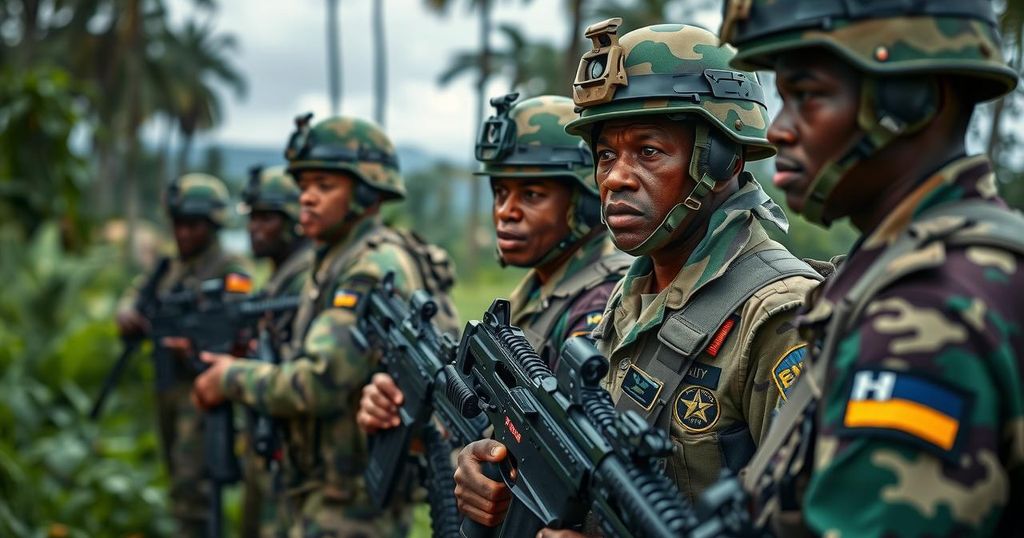Russia has sent 200 military instructors to Equatorial Guinea to protect President Teodoro Obiang and solidify its influence in West Africa. This move follows recent investigations into President Obiang’s son for corruption. The arrangement highlights Russia’s commitment to stabilizing the ruling dynasty in the oil-rich nation.
Russia has deployed 200 military instructors to Equatorial Guinea, aimed at ensuring the protection of President Teodoro Obiang Nguema Mbasogo and solidifying its influence in West Africa. The instructors have been engaged in training security personnel in major cities, aligning with Russia’s broader strategy to extend its geopolitical reach. The instructors’ presence is particularly significant as President Obiang’s son, who is being prepared to succeed his father, is under investigation for corruption-related activities across multiple jurisdictions. This military collaboration underscores Russia’s commitment to stabilizing the ruling dynasty that has held power since 1979. The involvement of Russian security services not only secures the personal safety of the president’s family but also sustains the control over the nation’s resources, especially given Equatorial Guinea’s status as a leading oil exporter. The arrangement follows President Obiang’s visit to Moscow, where he expressed gratitude to President Vladimir Putin for the support. Furthermore, the increased Russian presence has prompted American companies to reevaluate their investments within the region.
The relationship between Russia and Equatorial Guinea is evolving as part of a broader strategy aimed at extending Russian influence in West Africa. Equatorial Guinea, ruled by President Teodoro Obiang since 1979, is significant due to its oil resources and geopolitical positioning. The recent arrival of Russian military instructors signals a commitment to support the ruling dynasty amidst various accusations against the president’s family, particularly his son, who is being groomed for leadership. Such international relationships often imply a shift in economic dynamics and diplomatic affiliations, affecting interactions with Western nations, particularly the United States.
In conclusion, the deployment of Russian military instructors to Equatorial Guinea reflects a strategic maneuver by Russia to bolster its influence while ensuring the protection of its allies in Africa. This intervention indicates deeper ties between the two nations, coinciding with the implications of alleged financial misconduct involving the president’s son. The evolving geopolitical landscape presents challenges for American entities and may alter the fabric of international relations in the region.
Original Source: 112.ua






